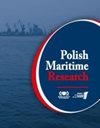基于生命周期评估的小型船舶船体建造环境影响分析
IF 2
3区 工程技术
Q2 ENGINEERING, MARINE
引用次数: 0
摘要
摘要 近年来,与人类活动对自然环境的影响有关的问题变得日益紧迫,全球变暖的挑战要求我们立即采取行动。为了支持环境保护工作,在评估各种产品和系统时必须采用更广泛的视角。生命周期评估(LCA)是进行此类评估的重要工具,它可以对产品的整个生命周期进行全面分析。本文对使用钢、铝和复合材料三种不同材料制造的快速巡逻艇船体进行了比较分析。生命周期评估涵盖了从材料生产、船体建造和使用到最终报废的各个阶段。为评估船体对环境的影响制定了具体标准,并明确界定了系统边界。在最后一节,我们得出了一些结论,强调了建筑材料再利用的重要性。通过强调这种方法,可以最大限度地减少生态足迹,创造可持续发展的未来。本文章由计算机程序翻译,如有差异,请以英文原文为准。
Analysis of the Environmental Impact of the Hull Construction of a Small Vessel Based on LCA
Abstract In recent years, issues related to the impact of human activity on the natural environment have become pressing, and the challenge of global warming necessitates immediate action. To support environmental protection efforts, it has become imperative to adopt a broader perspective when evaluating various products and systems. A valuable tool for such assessments is a life cycle assessment (LCA), which enables a comprehensive analysis of the entire life cycle of a product. This paper presents a comparative analysis of the hull of a fast patrol craft, fabricated using three different materials: steel, aluminium, and composite materials. The LCA covers every stage from material production, through the construction and use of the hull, to its eventual disposal. A specific criterion was established to evaluate the impact of the hull on the environment, with clearly defined system boundaries. In the final section, we draw some conclusions that underscore the importance of reusing construction materials. By emphasising this approach, ecological footprints can be minimised and a sustainable future can be created.
求助全文
通过发布文献求助,成功后即可免费获取论文全文。
去求助
来源期刊

Polish Maritime Research
工程技术-工程:海洋
CiteScore
3.70
自引率
45.00%
发文量
20
审稿时长
>12 weeks
期刊介绍:
The scope of the journal covers selected issues related to all phases of product lifecycle and corresponding technologies for offshore floating and fixed structures and their components.
All researchers are invited to submit their original papers for peer review and publications related to methods of the design; production and manufacturing; maintenance and operational processes of such technical items as:
all types of vessels and their equipment,
fixed and floating offshore units and their components,
autonomous underwater vehicle (AUV) and remotely operated vehicle (ROV).
We welcome submissions from these fields in the following technical topics:
ship hydrodynamics: buoyancy and stability; ship resistance and propulsion, etc.,
structural integrity of ship and offshore unit structures: materials; welding; fatigue and fracture, etc.,
marine equipment: ship and offshore unit power plants: overboarding equipment; etc.
 求助内容:
求助内容: 应助结果提醒方式:
应助结果提醒方式:


